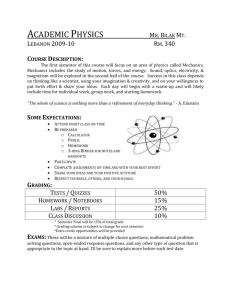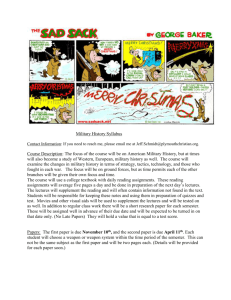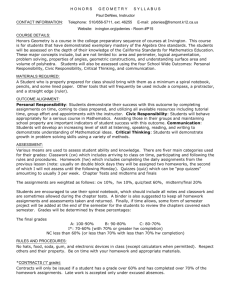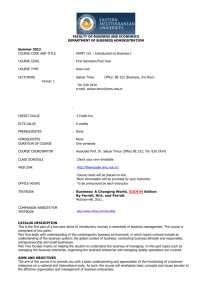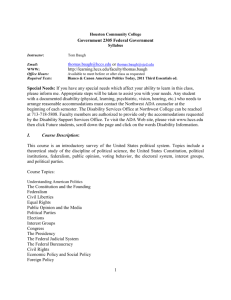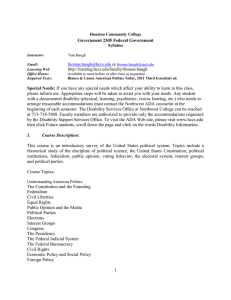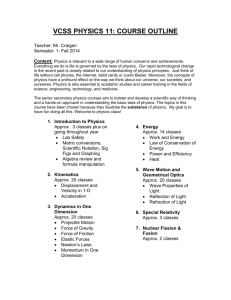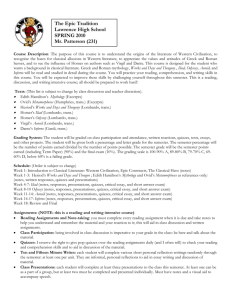Vertebrate Zoology - St. Francis School
advertisement
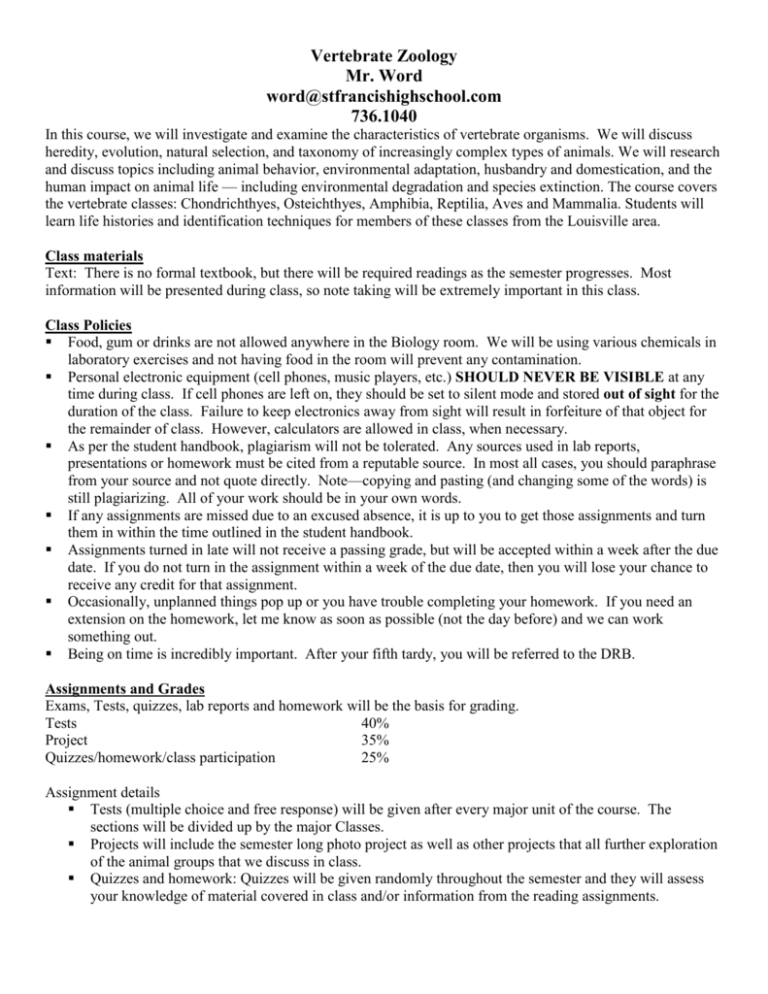
Vertebrate Zoology Mr. Word word@stfrancishighschool.com 736.1040 In this course, we will investigate and examine the characteristics of vertebrate organisms. We will discuss heredity, evolution, natural selection, and taxonomy of increasingly complex types of animals. We will research and discuss topics including animal behavior, environmental adaptation, husbandry and domestication, and the human impact on animal life — including environmental degradation and species extinction. The course covers the vertebrate classes: Chondrichthyes, Osteichthyes, Amphibia, Reptilia, Aves and Mammalia. Students will learn life histories and identification techniques for members of these classes from the Louisville area. Class materials Text: There is no formal textbook, but there will be required readings as the semester progresses. Most information will be presented during class, so note taking will be extremely important in this class. Class Policies Food, gum or drinks are not allowed anywhere in the Biology room. We will be using various chemicals in laboratory exercises and not having food in the room will prevent any contamination. Personal electronic equipment (cell phones, music players, etc.) SHOULD NEVER BE VISIBLE at any time during class. If cell phones are left on, they should be set to silent mode and stored out of sight for the duration of the class. Failure to keep electronics away from sight will result in forfeiture of that object for the remainder of class. However, calculators are allowed in class, when necessary. As per the student handbook, plagiarism will not be tolerated. Any sources used in lab reports, presentations or homework must be cited from a reputable source. In most all cases, you should paraphrase from your source and not quote directly. Note—copying and pasting (and changing some of the words) is still plagiarizing. All of your work should be in your own words. If any assignments are missed due to an excused absence, it is up to you to get those assignments and turn them in within the time outlined in the student handbook. Assignments turned in late will not receive a passing grade, but will be accepted within a week after the due date. If you do not turn in the assignment within a week of the due date, then you will lose your chance to receive any credit for that assignment. Occasionally, unplanned things pop up or you have trouble completing your homework. If you need an extension on the homework, let me know as soon as possible (not the day before) and we can work something out. Being on time is incredibly important. After your fifth tardy, you will be referred to the DRB. Assignments and Grades Exams, Tests, quizzes, lab reports and homework will be the basis for grading. Tests 40% Project 35% Quizzes/homework/class participation 25% Assignment details Tests (multiple choice and free response) will be given after every major unit of the course. The sections will be divided up by the major Classes. Projects will include the semester long photo project as well as other projects that all further exploration of the animal groups that we discuss in class. Quizzes and homework: Quizzes will be given randomly throughout the semester and they will assess your knowledge of material covered in class and/or information from the reading assignments. Tentative schedule Unit 1. Introduction to Zoology 2. Vertebrate Evolution 3. Fish 4. Amphibians 5. Reptiles 6. Birds 7. Mammals Completion Goal August 19 August 31 September 15 October 14 November 10 November 19 December 8

